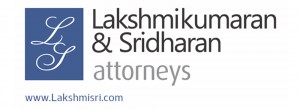Under section 7 of the Insolvency and Bankruptcy Code, 2016 (IBC), the National Company Law Tribunal (NCLT) in admitting a petition by a financial creditor is concerned only with the existence of a default of a financial debt, not whether such default is admitted or disputed by the debtor. The Supreme Court in Innoventive Industries v ICICI Bank confirmed that the only defence to a section 7 petition is that the debt is not payable in law or in fact, and that there has therefore been no default. However, the scope of any enquiry conducted by the NCLT to determine whether a default has occurred has been a matter of argument.

Joint Partner
Lakshmikumaran & Sridharan
The NCLT has to determine whether the debt constitutes a financial debt and whether the debtor has defaulted in repayment. In a conventional loan transaction or a financing transaction where the debt and the repayment terms are clear, such determination may be straightforward. However, this is not always the case and some section 7 petitions have alleged default under transactions, which are not simple borrowing transactions, but have “the commercial effect of a borrowing”. This is common in shareholder disputes, where investors and shareholders claim to be financial creditors, or in the case of a put-option holder against the defaulting shareholder. Ordinarily, these disputes would be heard in the forums of choice of the parties, the civil or commercial courts or arbitration. These parties are now able to file for insolvency under the IBC despite the disputed elements of their claims having to be dealt with in the limited enquiry under section 7. It could not have been the legislative intention that unascertained and unadjudicated claims should lead to insolvency proceedings.

Senior Associate
Lakshmikumaran & Sridharan
Sometimes the NCLT has refused to entertain petitions by financial creditors in complex transactions as they involved disputed matters. However, there was no ruling that allowed relief to companies facing insolvency proceedings that had bypassed the dispute resolution mechanism. The recent decision of the NCLT in Indus Biotech Private Ltd v Kotak India Venture Fund-I brings some clarity to this point. The NCLT held that a petition by a financial creditor involving disputed claims where the default is not clear on the face of it cannot be admitted under section 7 of the IBC.
Kotak India Venture Funds, a financial creditor, had entered into a share subscription and shareholders agreement with Indus Biotech, the supposed corporate debtor, to subscribe for both equity and preference shares. In order to carry out a qualified initial public offering, Kotak had to convert the preference shares to equity shares. However, the parties could not agree the conversion formula, the valuation of the creditor giving it 30% of the equity, and the valuation of Indus giving Kotak 10% of the equity after the conversion. Without a valuation, Kotak claimed it was entitled to the early redemption of the shares under the agreement and claimed around ₹3.67 billion (US$49 million) in lieu of the converted preference shares. Kotak then alleged that Indus had defaulted on the payment of the sum and filed a petition under section 7, claiming to be a financial creditor.
Indus, relying on an arbitration clause in the agreement, filed a petition with the Supreme Court for the appointment of an arbitrator. At the same time Indus made an application to the NCLT under section 8 of the Arbitration and Conciliation Act, 1996 (ACA) that the dispute be referred to arbitration.
The NCLT decided that there was a dispute over the valuation formula and that there was no default by Indus. The tribunal observed that admitting the petition under Section 7 would push Indus, which was otherwise solvent and debt-free, into insolvency, which was an undesirable outcome. The NCLT rejected the argument that various pronouncements of the Supreme Court meant that insolvency proceedings were of a public nature and could not be the subject matter of arbitration. The NCLT held that the court itself had clarified that the rules should not be applied rigidly and that when there was a dispute capable of being arbitrated on, and an application made under the ACA, it was mandatory for the NCLT to refer the dispute to arbitration.
This decision allows similar cases to be referred to agreed dispute resolution procedures instead of allowing the insolvency proceedings to be used as a tool to recover debts. It will be a step in the right direction when insolvency tribunals accept that proceedings under the IBC should be the last resort, used only in clear and obvious cases.
Anush Raajan is a joint partner and Swastika Chakravarti is a senior associate at Lakshmikumaran & Sridharan.

Lakshmikumaran & Sridharan
B-6/10 Safdarjung Enclave
New Delhi – 110 029
India
Contact details
Tel: +91 11 2619 2243 / +91 11 4129 9900
Fax: +91 11 2619 7578 / +91 11 4129 9899
Email: LSDEL@lakshmisri.com
Website: www.lakshmisri.com


























